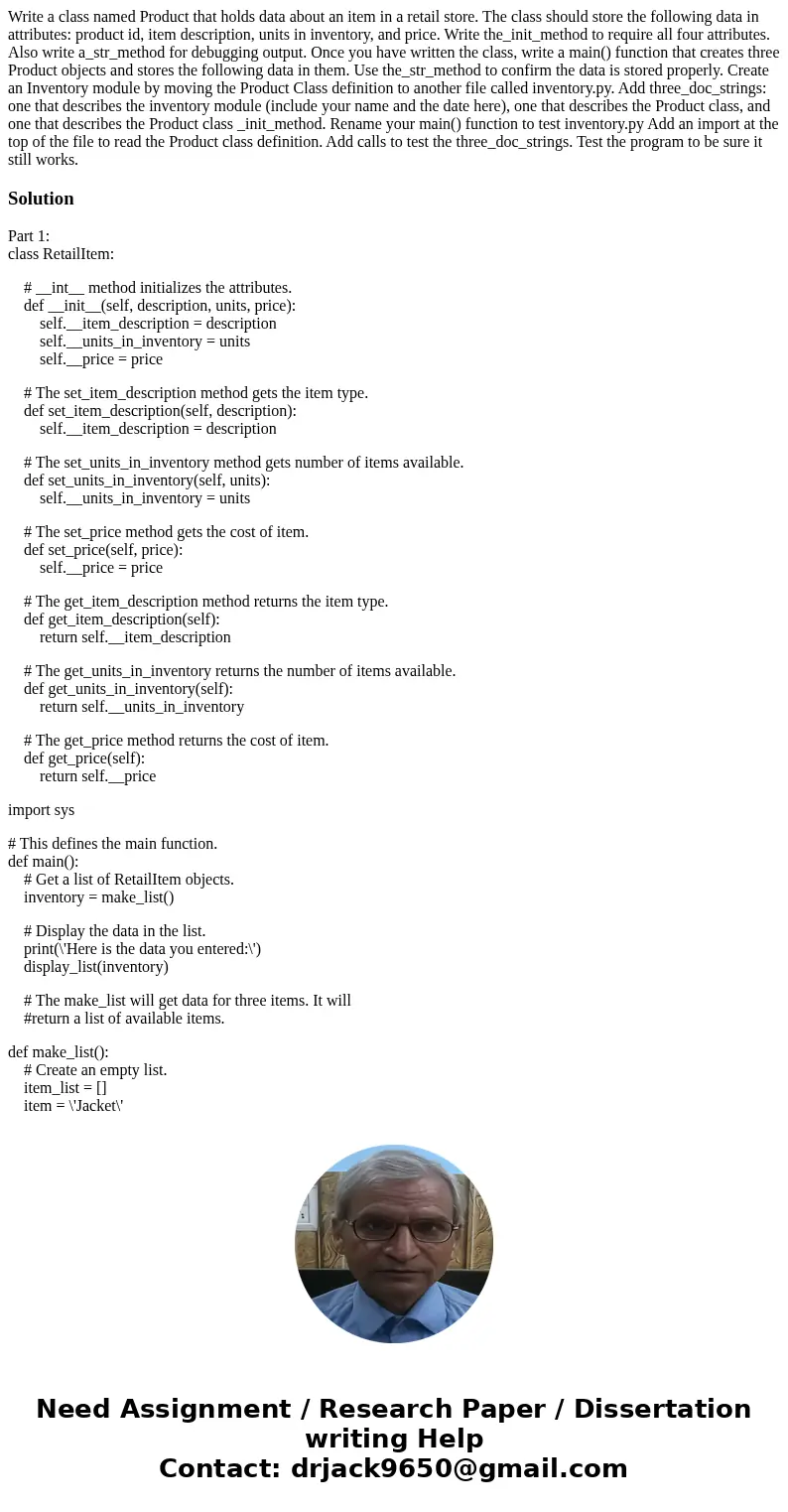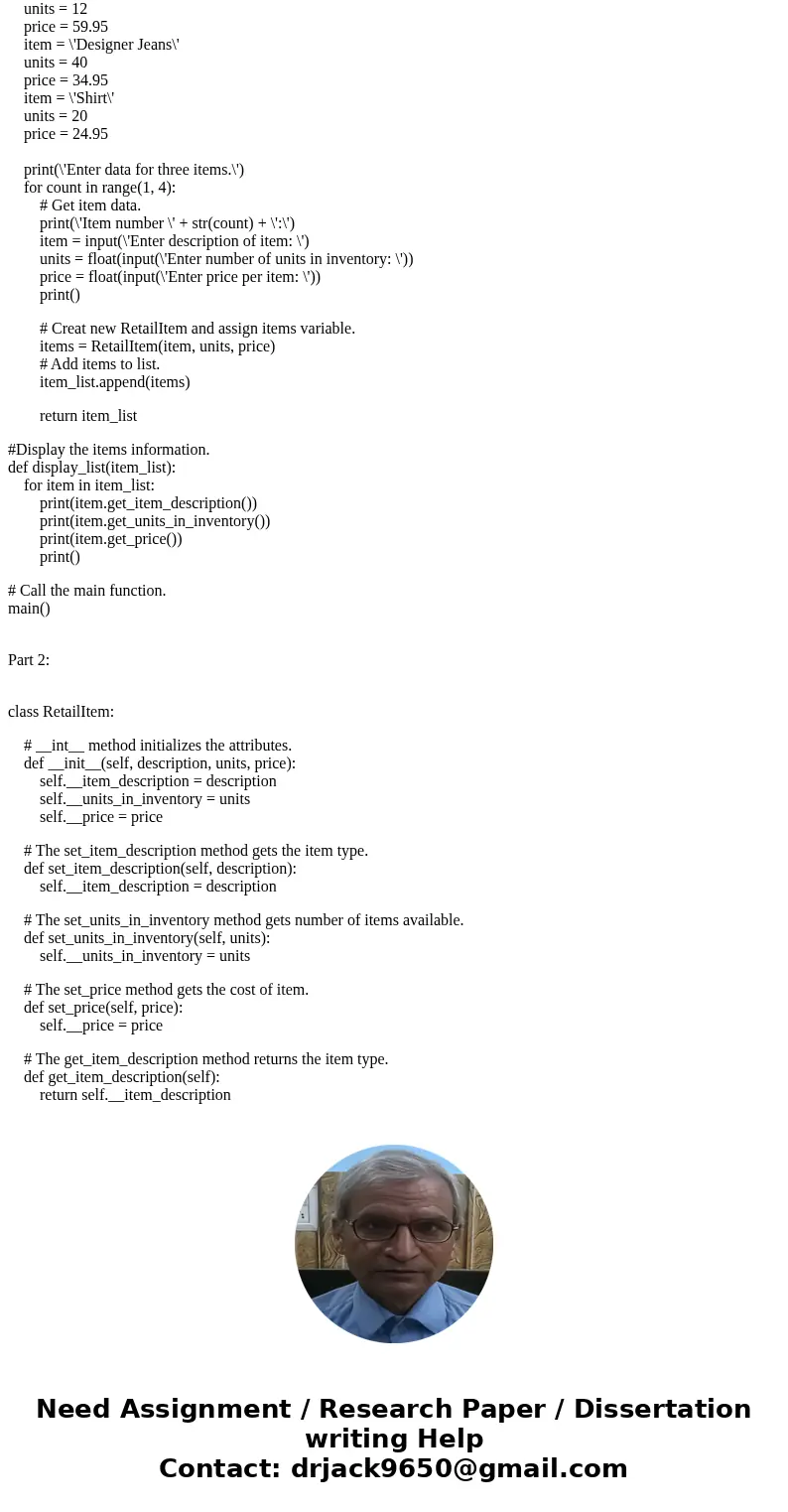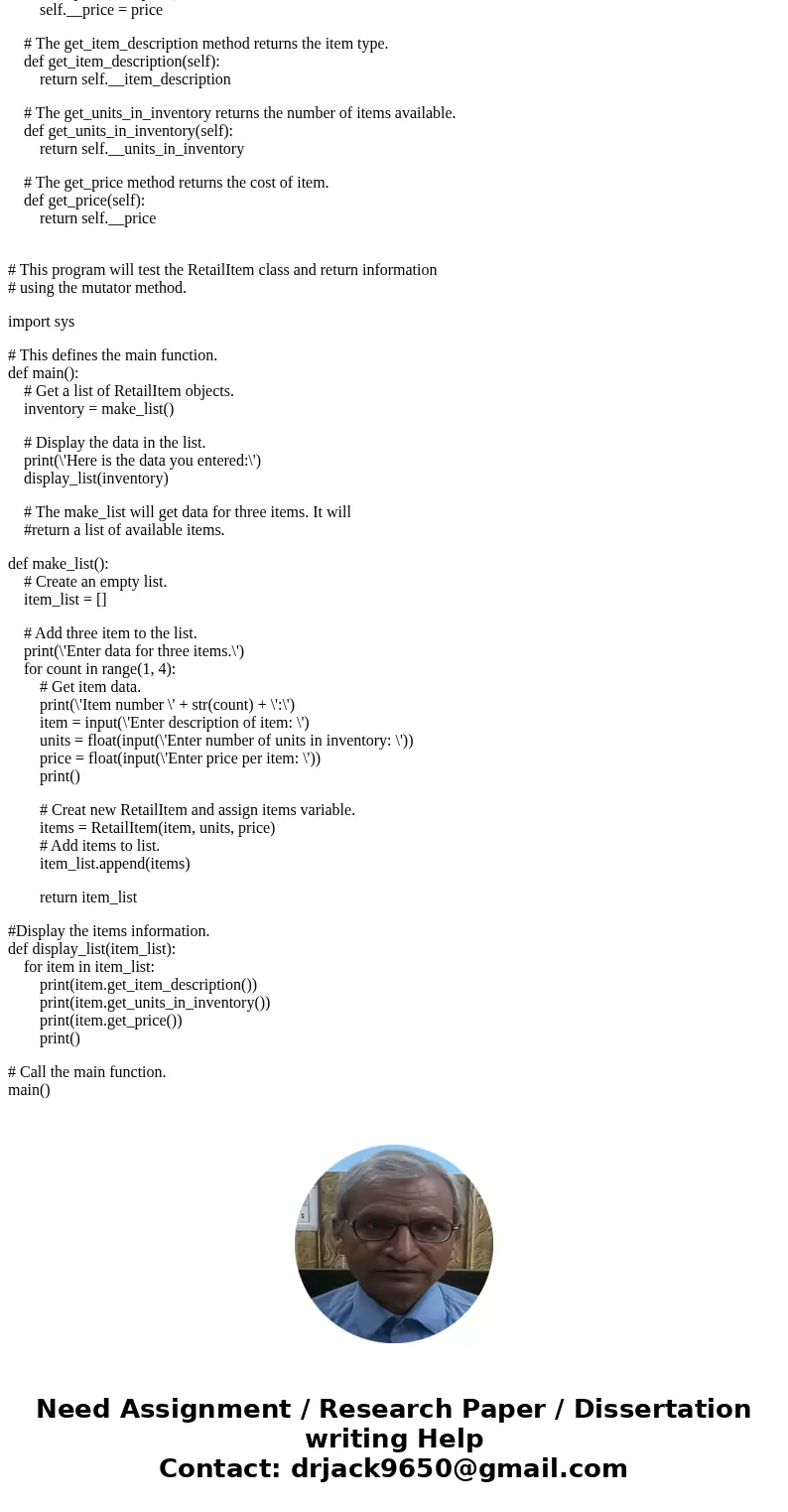Write a class named Product that holds data about an item in
Solution
Part 1:
class RetailItem:
# __int__ method initializes the attributes.
def __init__(self, description, units, price):
self.__item_description = description
self.__units_in_inventory = units
self.__price = price
# The set_item_description method gets the item type.
def set_item_description(self, description):
self.__item_description = description
# The set_units_in_inventory method gets number of items available.
def set_units_in_inventory(self, units):
self.__units_in_inventory = units
# The set_price method gets the cost of item.
def set_price(self, price):
self.__price = price
# The get_item_description method returns the item type.
def get_item_description(self):
return self.__item_description
# The get_units_in_inventory returns the number of items available.
def get_units_in_inventory(self):
return self.__units_in_inventory
# The get_price method returns the cost of item.
def get_price(self):
return self.__price
import sys
# This defines the main function.
def main():
# Get a list of RetailItem objects.
inventory = make_list()
# Display the data in the list.
print(\'Here is the data you entered:\')
display_list(inventory)
# The make_list will get data for three items. It will
#return a list of available items.
def make_list():
# Create an empty list.
item_list = []
item = \'Jacket\'
units = 12
price = 59.95
item = \'Designer Jeans\'
units = 40
price = 34.95
item = \'Shirt\'
units = 20
price = 24.95
print(\'Enter data for three items.\')
for count in range(1, 4):
# Get item data.
print(\'Item number \' + str(count) + \':\')
item = input(\'Enter description of item: \')
units = float(input(\'Enter number of units in inventory: \'))
price = float(input(\'Enter price per item: \'))
print()
# Creat new RetailItem and assign items variable.
items = RetailItem(item, units, price)
# Add items to list.
item_list.append(items)
return item_list
#Display the items information.
def display_list(item_list):
for item in item_list:
print(item.get_item_description())
print(item.get_units_in_inventory())
print(item.get_price())
print()
# Call the main function.
main()
Part 2:
class RetailItem:
# __int__ method initializes the attributes.
def __init__(self, description, units, price):
self.__item_description = description
self.__units_in_inventory = units
self.__price = price
# The set_item_description method gets the item type.
def set_item_description(self, description):
self.__item_description = description
# The set_units_in_inventory method gets number of items available.
def set_units_in_inventory(self, units):
self.__units_in_inventory = units
# The set_price method gets the cost of item.
def set_price(self, price):
self.__price = price
# The get_item_description method returns the item type.
def get_item_description(self):
return self.__item_description
# The get_units_in_inventory returns the number of items available.
def get_units_in_inventory(self):
return self.__units_in_inventory
# The get_price method returns the cost of item.
def get_price(self):
return self.__price
# This program will test the RetailItem class and return information
# using the mutator method.
import sys
# This defines the main function.
def main():
# Get a list of RetailItem objects.
inventory = make_list()
# Display the data in the list.
print(\'Here is the data you entered:\')
display_list(inventory)
# The make_list will get data for three items. It will
#return a list of available items.
def make_list():
# Create an empty list.
item_list = []
# Add three item to the list.
print(\'Enter data for three items.\')
for count in range(1, 4):
# Get item data.
print(\'Item number \' + str(count) + \':\')
item = input(\'Enter description of item: \')
units = float(input(\'Enter number of units in inventory: \'))
price = float(input(\'Enter price per item: \'))
print()
# Creat new RetailItem and assign items variable.
items = RetailItem(item, units, price)
# Add items to list.
item_list.append(items)
return item_list
#Display the items information.
def display_list(item_list):
for item in item_list:
print(item.get_item_description())
print(item.get_units_in_inventory())
print(item.get_price())
print()
# Call the main function.
main()



 Homework Sourse
Homework Sourse